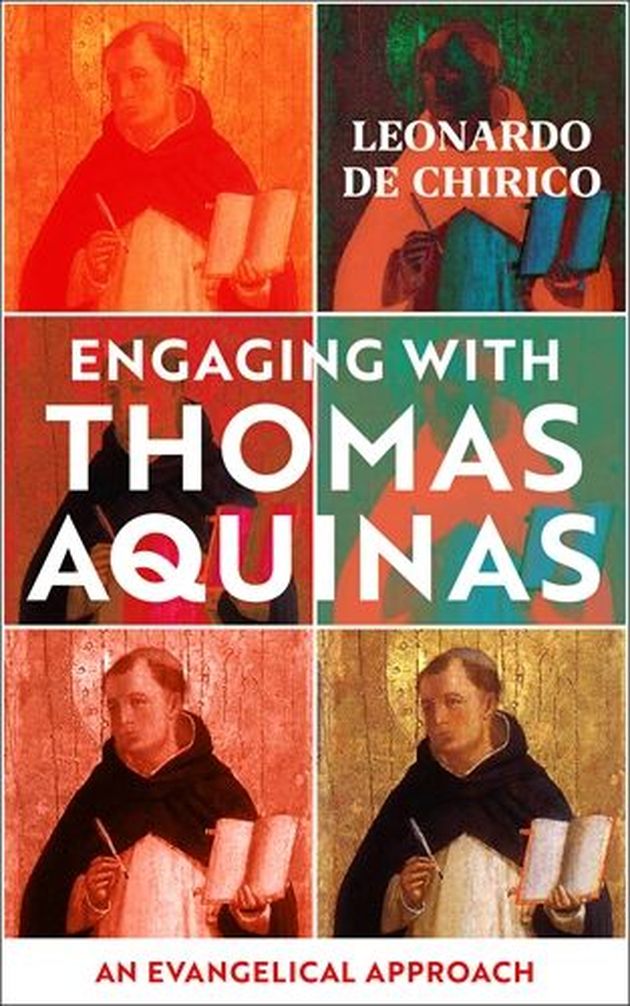This is to regard Thomas as an indispensable interlocutor in the history of Christian thought to be read critically and generously in light of the principle of “sola Scriptura”.
![Thomas Aquinas by Fra Bartolomeo. / [link]vignette[/link], Wikimedia Commons.](https://cms.evangelicalfocus.com/upload/imagenes/660d19b19fcdf_ThomAqui940.png) Thomas Aquinas by Fra Bartolomeo. / [link]vignette[/link], Wikimedia Commons.
Thomas Aquinas by Fra Bartolomeo. / [link]vignette[/link], Wikimedia Commons.
Thomas Aquinas died on March 7, 1274, exactly 750 years ago. This year and next (the eighth centenary of his birth) will be special occasions to reckon with his legacy.
Indeed, there will be conferences, publications, and various initiatives worldwide.
To approach Thomas Aquinas (1225-1274) is to encounter one of the all-time giants of theology. Thomas is second only to Augustine in his influence on Western Christianity.
More specifically, for centuries, Roman Catholicism has regarded Thomas as its champion, the highest, most resounding, most complete voice of Roman Catholic thinking and believing.
Canonized by John XXII as early as 1323 only forty-nine years after his death, he was proclaimed a Doctor of the Church by Pius V in 1567 as the quintessential Catholic theologian whose thinking would defeat the Reformation.
During the Council of Trent, the Summa theologiae was symbolically placed next to the Bible as evidence of its primary importance in formulating the Tridentine decrees and canons against justification by faith alone.
In the seventeenth century, Thomas was considered the defender of the Catholic theological system by Robert Bellarmine, the greatest anti-Protestant controversialist who influenced entire generations of Roman Catholic apologists.In 1879, Pope Leo XIII issued the encyclical Aeterni Patris, where he pointed to Thomas as the highest expression of philosophical and theological science in a climate marked by bitter confrontation with modern thought.
The Second Vatican Council (1962-1965) stipulated that the formation of priests should have Thomas as the supreme guide in their studies (Optatam Totius, no. 17).
In more recent years, Paul VI (Lumen ecclesiae, 1974) and John Paul II (Fides et ratio, 1998) expressed deferential appreciation by pointing to Thomas as a “master of thought and model of the right way of doing theology” (FR, no. 43).
This is to say that the Church of Rome has appropriated Thomas persistently and convincedly, elevating him to the Roman Catholic theologian par excellence.
Moreover, Thomas is the recognized authority behind many unbiblical developments in medieval and modern Roman Catholicism, from Trent to Vatican I and II.
One cannot fail to see the distorting elements at the heart of his system that have generated departures, rather than approaches, to biblical faith.
In recent decades and with increasing intensification, Thomas has instead been brought closer to a Protestant theological sensibility.
Today, there seems to be a widespread perception that Thomas is no longer a heritage for Roman Catholics and that evangelicals can and should learn much from Thomas.
Protestant theologians (from Peter Martyr Vermigli to Herman Bavinck via Francis Turrettini) generally exercised theological discernment that enabled them to appreciate the aspects of his theology that fell within the groove of biblical and orthodox faith and to reject his teaching where it conflicted with Scripture.
In other words, they did not espouse the Thomist system as such (including its metaphysics and epistemology). Still, they broke it down into its parts as far as possible to do so with integrity and used it “eclectically.”
Their attention to Thomas was more methodological than substantive. They merely borrowed some of his ideas but did not assign them architectural importance.
While certain sectors of evangelical theology know a genuine flirtation with the thought of Thomas, it may be useful to recall the lesson of a great Reformed theologian like Herman Bavinck (1854-1921).
As with other ancient and medieval church fathers, Bavinck adopts an approach to Thomas that has been described as “eclectic,” that is, free to pick up insights and theses from him in awareness of his being on the other side (the Roman Catholic side) from the foundations of evangelical theology.Within a theology anchored in Scripture, Bavinck reads Thomas with intelligence and spiritual acumen, using various elements without espousing his system. For Bavinck, grace does not elevate or perfect nature but redeems it from sin.
This eclecticism is also how the Reformers and Reformed and Lutheran scholastics read Thomas, sometimes endorsing his positions and arguments but being clear that the framework of Thomas’ theology built on the nature-grace motif was distinct and distant from the evangelical faith.
This is not to reject Thomas as a quintessentially toxic theologian to be avoided at all costs, nor to elevate him as a champion of Christian orthodoxy, but to regard him as an indispensable interlocutor in the history of Christian thought to be read critically and generously in light of the principle of “sola Scriptura” that the Reformation called to the attention of the whole church.

P.S. Let me point out my upcoming book (May 2024) that can help evangelical discernment related to Thomas: Engaging with Thomas Aquinas. An Evangelical Approach (London, Apollos, 2024).
Leonardo De Chirico, theologian and evangelical pastor in Rome (Italy).

Las opiniones vertidas por nuestros colaboradores se realizan a nivel personal, pudiendo coincidir o no con la postura de la dirección de Protestante Digital.
Si quieres comentar o